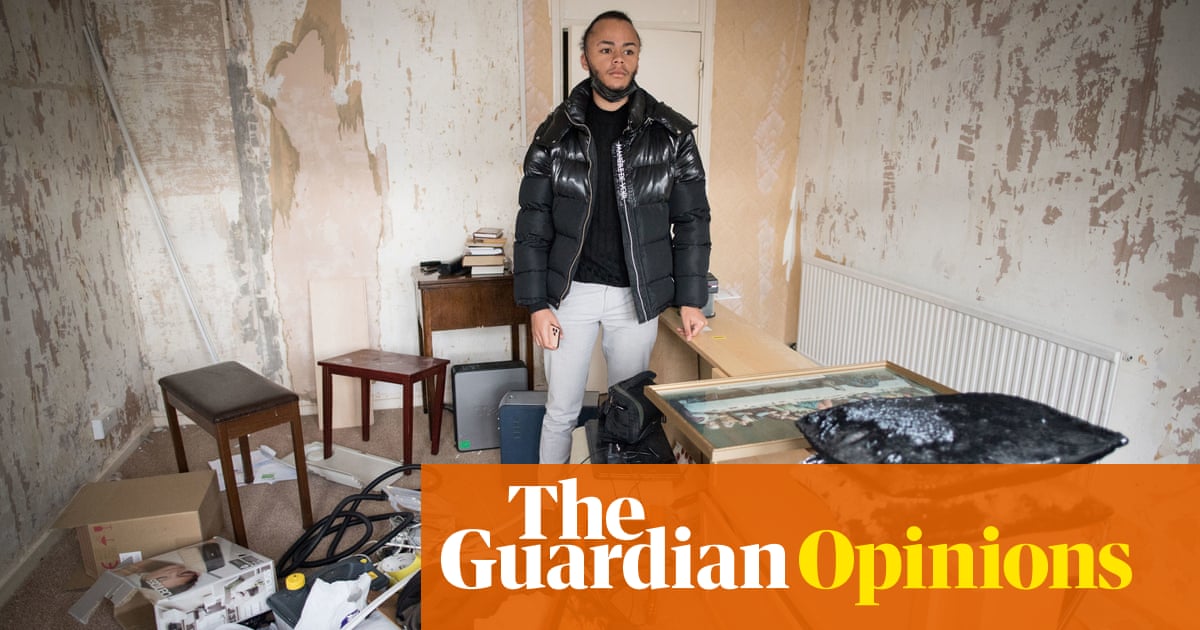I never intended to become a housing rights advocate; my dream was to be an artist, as painting has always been my passion. However, life had other plans for me, and it feels like I missed a crucial turn on the highway, leaving me unable to go back.
My journey began in 2018 when my family moved into a housing association flat on the Eastfields estate in Mitcham, south London. It was my father, my two sisters (aged 17 and 20), and 19-year-old me. Prior to that, we lived in temporary accommodation—a half-converted garage plagued with mold, damp walls, and a bathroom no bigger than a cupboard. We had been waiting for permanent council housing since 2016, but the new flat was no improvement. The carpets and wallpaper were ancient, and the place was infested with cockroaches, flies, and woodlice. The mouse problem in the kitchen was so severe that we avoided using it. The glass patio doors were broken, making the flat unbearably cold. Water-filled lights during rainstorms were common, especially in the bathroom, which had no windows. This wasn’t unique to us; the entire Eastfields estate was in a state of disrepair. Despite numerous complaints to Clarion, the housing association, nothing was ever fixed.
In late 2018, my father was diagnosed with esophageal cancer, and I believe the poor living conditions accelerated his decline. He passed away in January 2020. On the day of his funeral in February, a massive leak from a bathroom pipe caused part of the living room ceiling to collapse. Dealing with grief, lockdown during Covid, work stress, and constant complaints to Clarion made life extremely depressing. No one came to fix the ceiling until October that year. When they did, they left dust containing white asbestos everywhere after removing the old Artex. Our already poor living conditions turned into a construction site. They didn’t install a new ceiling until January of the following year, and many other issues remained unresolved.
By May 2021, I had reached my breaking point. I was working in marketing at my old secondary school and spent an entire morning calling Clarion. The person who answered was rude and dismissive, saying they were too busy to send anyone out before hanging up on me. During my break, I went home, took pictures of our living conditions, and uploaded them to Twitter (now X). The post went viral and caught the attention of national media. Clarion finally repaired the flat over the summer but issued a non-apology that read: “We apologise if Mr Tweneboa feels we haven’t provided the service expected from us.” This only fueled my frustration. Together with two members of the residents’ association, I distributed letters across the estate asking residents about their conditions. By the time we finished, my phone was inundated with messages, pictures, emails, and complaints. It was overwhelming.
From there, things snowballed. I continued uploading pictures to social media, prompting more news coverage and shaming Clarion into action. The BBC did a piece on our situation, and it gained even more attention. People from across London and Britain began contacting me—not just about housing providers and landlords but also about MPs and councillors who were failing their constituents. I traveled around the country to hold these providers accountable—essentially doing the job that MPs should have been doing.
What frustrated me most was the lack of urgency and human decency in addressing these problems. My anger stemmed not only from my father’s ordeal but also from discovering that others across Britain were suffering similarly. People were dying in their homes from asthma, skin conditions, and other illnesses related to dampness, mold, and disrepair. It infuriated me that elected officials were not adequately representing these individuals.
By this stage, my social media following had grown to include politicians and MPs. I would visit tenants’ homes, film their conditions, and upload the footage. Within 24 hours, these tenants would be moved out or found alternative permanent accommodation—something they had been fighting for years to achieve. This public shaming proved powerful but was only a fraction of the shame we residents had endured.
Now, this advocacy work is my full-time job. I continue to speak with residents and engage with news organizations. I’ve written a book on the housing crisis and frequently confront housing associations about the slum conditions people are living in, urging them to return to their original mission.
I’m still naming and shaming housing providers and striving to keep housing issues at the forefront of political discussions, especially as elections approach. Through this column, I hope to share some of the problems I encounter in my work with ordinary people.
I’ve come to understand how foundational housing is for all of us and how it intersects with issues like poverty, unemployment, crime, domestic violence, and homelessness. Decent, safe, affordable housing should be a necessity in this

